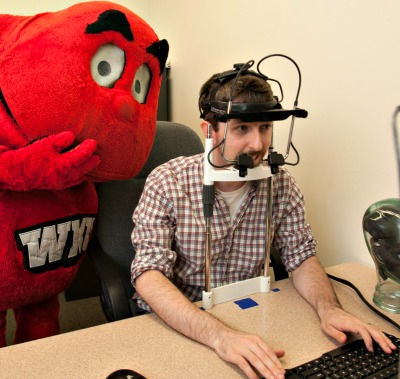Psychological Sciences Undergraduate Programs
Minor in Psychological Science
Psychological Science focuses on mental processes and behaviors that are relevant across many domains, including business and organizations, health, engineering and industrial design, ecology, human development, and neuroscience. The minor in Psychological Science provides graduates with a broad overview of the discipline, as well as exposure to the foundations of the discipline. The Psychological Science minor focuses students on becoming more engaged and critical consumers of the science underlying psychology through courses informed by current research and practice in the scientific study of individual and collective behavior, the physical and environmental bases of behavior, and the analysis and treatment of behavioral problems.
The minor requires a minimum of 22 credit hours: 7 from research design and a discipline overview, 9 reflecting foundational studies in the discipline, and 6 hours of electives. This minor is especially relevant to students who are in a pre-professional track (e.g., pre-med) or to students majoring in disciplines where psychological science can inform research and practice (e.g., biology, computer science, philosophy, religious studies, nursing, communication disorders, management, etc.). This program will be particularly valuable to students who are in Pre-Med or Pre-Health programs that require completion of the Medical College Admission Test (MCAT), as recently, the MCAT was substantially revised with a social science focus in mind.

Minor Requirements:
The minor in Psychological Science requires a minimum of 22 credit hours.
The following courses (7 credits) are required for the minor:
- PSYS 100 Introduction to Psychology (3 credits) or PSYS 160 Introduction to Biological Psychology (3 credits)
- PSYS 210 Research Methods (3 credits)
- PSYS 211 Research Methods Lab (1 credit)
At least one of the following courses (3 credits) from Category A (Individual Differences and Social Processes) is required for the minor:
- PSYS 350 Social Psychology (3 credits)
- PSYS 440 Abnormal Psychology (3 credits)
At least one of the following courses (3 credits) from Category B (Learning, Cognition, and Biopsychology) is required for the minor:
- PSYS 331 Psychology of Learning (3 credits)
- PSYS 333 Cognitive Psychology (3 credits)
- PSYS 360 (or PSYS 362) Behavioral Neuroscience (3 credits)
- PSYS 363 Sensory and Perceptual Systems (3 credits)
At least one of the following courses (3 credits) from Category C (Developmental Processes) is required for the minor:
- PSYS 220 Introduction to Developmental Psychology (3 credits)
- PSYS 321 Child Developmental Psychology (3 credits)
- PSYS 423 Psychology of Adult Life and Aging (3 credits)
Six additional upper-level credit hours of PSYS courses are required. These hours can include the above restricted elective courses that were not taken to meet the Category A, Category B, or Category C requirements, and can include no more than 3 credit hours of PSYS 490.
Learning Outcomes of the Minor:
Consistent with the goals specified by the American Psychological Association for undergraduate programs, while completing the minor requirements, students will:
- Develop and apply a knowledge base in psychology that includes research design and content in the foundational areas of the discipline (i.e., learning and cognition, human development, physiological psychology, and sociocultural influences)
- Engage in critical scientific inquiry by using scientific reasoning to interpret data and conclusions drawn from data, by recognizing limitations in research design and implementation, and by discussing the implications that individual differences in sociocultural factors have in measuring psychological constructs
- Examine the ethical standards and social consequences of psychological research on the everyday lives of individuals from diverse backgrounds and at different stages of the life span
- Communicate the science of the discipline through written and oral forms of expression
- Reflect on the roles that the knowledge base and scientific reasoning skills developed in the program play in their professional development as responsible citizens and scholars
Other undergraduate programs:
JUMP Program (5-year B.S./M.S.)

Psychological Sciences
Some of the links on this page may require additional software to view.

